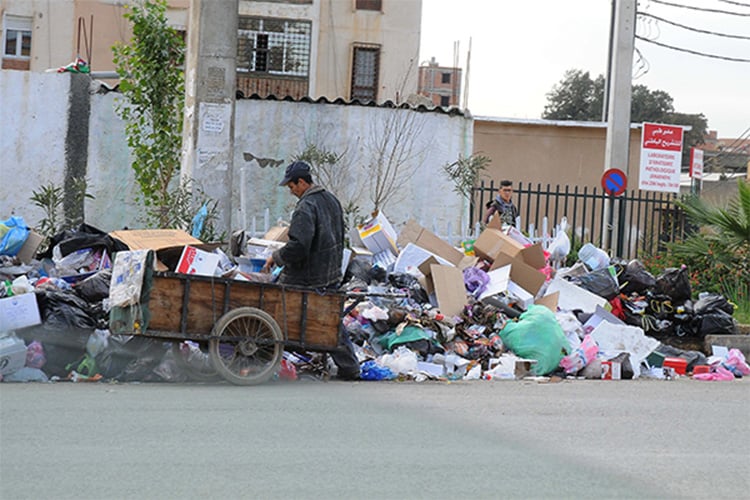Dr. Ahmed Kawash, a public health specialist in the Wilaya of Tiaret, warned in an interview with “Echorouk” about the dangers of collecting plastic materials without wearing protective clothing and gloves designed for this purpose, due to the direct health risks involved. He confirmed that collecting plastic, especially in summer, causes many diseases and threatens the safety of those practicing this profession because of the high temperatures and chemical reactions within the plastic.
Dr. Kawash added that the profession of plastic collecting undoubtedly endangers the lives of its practitioners, as they venture into rough and various places where plastic bottles are often discarded in dirty and polluted areas, turning into sources of various diseases such as food poisoning. This is due to handling the materials and eating immediately after collection without following hygiene rules. Moreover, these plastics contain carcinogenic substances harmful to the eyes, skin, and blood.
He confirmed that those in this profession search for plastic bottles and containers in dirty places, especially near household waste dumps, exposing them to many infectious diseases such as typhoid, cholera, skin diseases, allergies, severe fatigue, and very serious skin diseases, as well as other illnesses like kidney and intestinal diseases.
Abdelkader, who collects plastic in the heart of Tiaret city, uses a small cart he made himself to carry as much plastic as possible. After shops close and traffic stops, he goes out at night and works until dawn collecting bottles thrown in streets and neighborhoods, then stores them at home to sell to wholesalers. Abdelkader told Echorouk that his task is to collect bottles using his hand-pulled cart, then bring them home awaiting wholesalers who specialize in collecting this type of plastic. The wholesaler brings a portable manual scale, weighs the plastic bags, and pays Abdelkader according to the quantity collected.
Abdelkader added that collecting plastic is tiring and hard, especially with the high daytime temperatures, which forces him to work at night. Some of his colleagues risk working during the day, ignoring the dangers of heat and sun exposure, to collect as much as possible of this material that yields good profits, enabling them to support their families.
We also met Nasser, an ambitious young man working in plastic collection to complete his university studies. He is optimistic because he entered this field to help his family and cover study costs. He understands this work is temporary and not permanent, awaiting the completion of his university education and obtaining a decent job.
Between 15 and 30 DZD per kilogram
After collecting the plastic materials, practitioners manually compress them, place them in large bags, and then transport them to purchase and collection centers, usually located far from cities. The collected quantity is weighed and sold at prices ranging between 15 and 30 Algerian dinars per kilogram, often ignoring the health risks posed by various diseases, many of which are serious cancers.
One collector confirmed that some recycling institutions receive these collected plastics at different prices starting from 15 DZD, varying by institution. He added that collecting plastic contributes to cleaning roads and streets and protecting the environment. He called on young people to be cautious when practicing this type of work, adhere to safety conditions, maintain personal hygiene, and join institutions specialized in plastic collection, as they provide protective clothing and gloves that shield workers from diseases. Furthermore, workers in specialized institutions are required to visit occupational doctors who authorize them to practice this activity and monitor them regularly.













Recommended for you
Talib Al-Rifai Chronicles Kuwaiti Art Heritage in "Doukhi.. Tasaseem Al-Saba"
Exhibition City Completes About 80% of Preparations for the Damascus International Fair Launch
Unified Admission Applications Start Tuesday with 640 Students to be Accepted in Medicine
Egypt Post: We Have Over 10 Million Customers in Savings Accounts and Offer Daily, Monthly, and Annual Returns
His Highness Sheikh Isa bin Salman bin Hamad Al Khalifa Receives the United States Ambassador to the Kingdom of Bahrain
Al-Jaghbeer: The Industrial Sector Leads Economic Growth